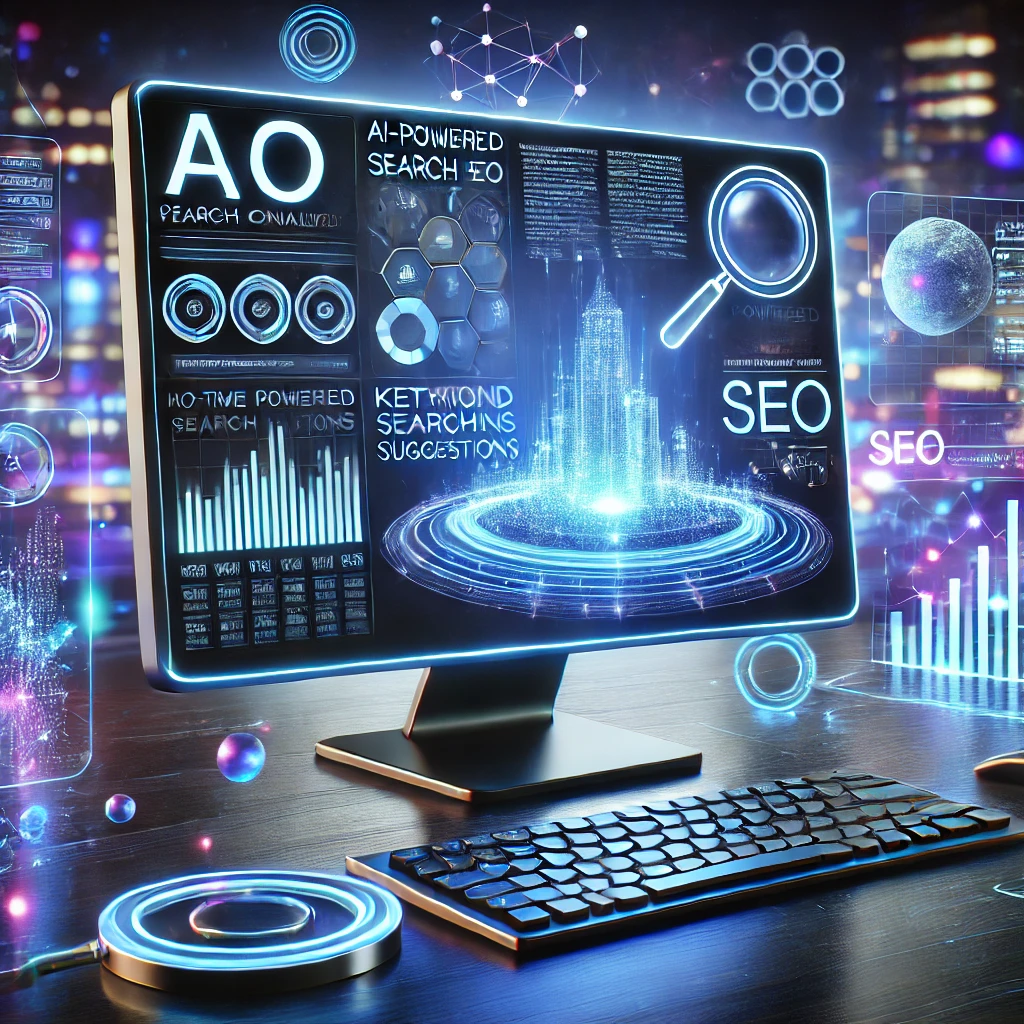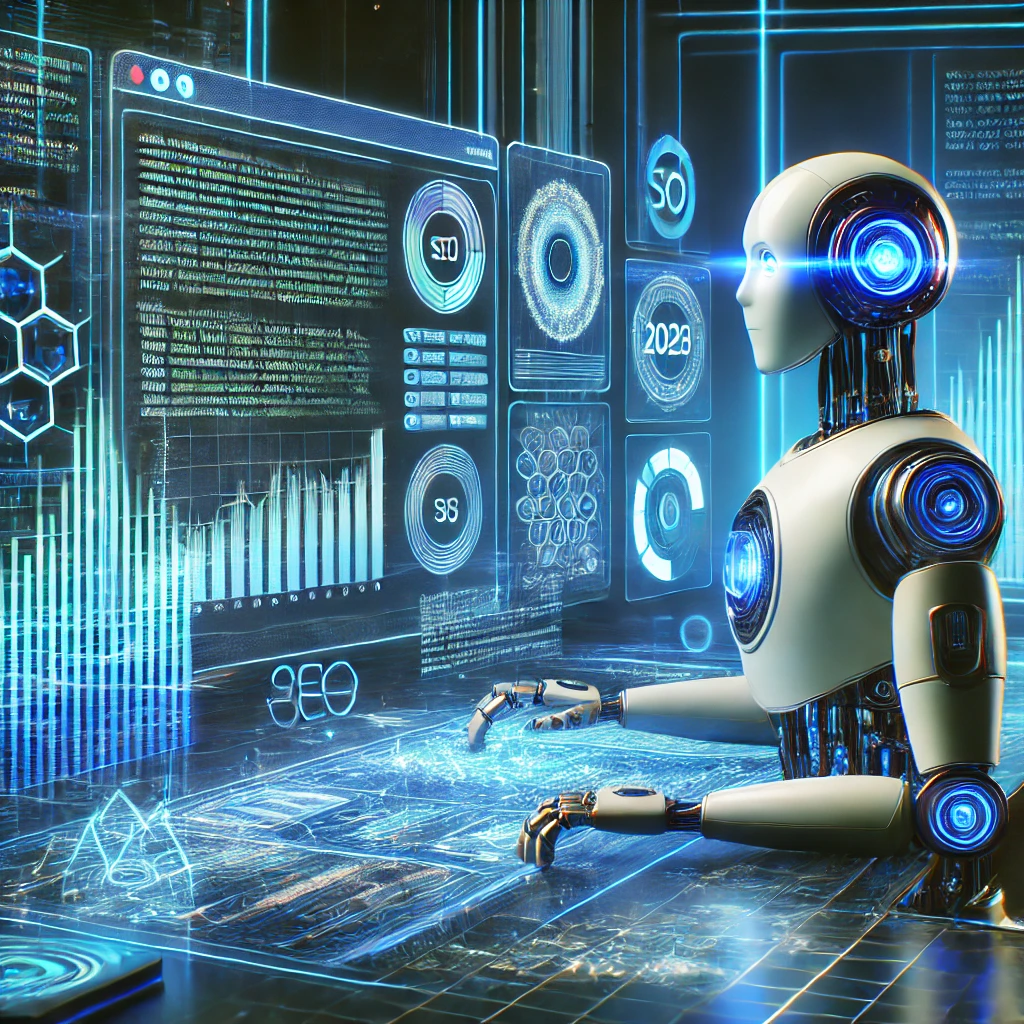How AI is Changing SEO in 2025 – Future of Search
Introduction
Search Engine Optimization (SEO) is evolving at an unprecedented pace, and Artificial Intelligence (AI) is at the forefront of this transformation. In 2025, AI-driven algorithms, machine learning, and automation tools are redefining how search engines rank websites. This article explores how AI is changing SEO and what the future holds for search.
1. AI-Powered Search Algorithms
Google’s AI-driven algorithms, like RankBrain and BERT, have been crucial in understanding search intent. In 2025, AI goes beyond keyword matching to analyze user behavior, context, and semantic meaning, making searches more personalized and accurate.
Key Changes:
- Enhanced natural language processing (NLP) for better understanding of search queries.
- More focus on search intent rather than just keywords.
- AI adapting to voice search and conversational AI.
2. Voice Search & AI Assistants
Voice search continues to grow with AI-powered assistants like Google Assistant, Siri, and Alexa optimizing results based on spoken queries. In 2025:
- 70% of searches are voice-based due to smart devices.
- AI prioritizes conversational and question-based keywords.
- Featured snippets and zero-click searches dominate voice search results.
3. AI-Generated Content & SEO
AI writing tools like GPT-4 and Jasper AI are producing high-quality content at scale. However, Google now prioritizes human-edited AI content for authenticity and trustworthiness.
- AI helps in content ideation, drafting, and optimization.
- AI-powered SEO tools (Surfer SEO, Clearscope) refine content structure.
- Human-AI collaboration is key to engaging, rank-worthy content.
4. Predictive Search & Personalization
AI now personalizes search experiences based on user history, location, and browsing behavior. In 2025:
- Predictive analytics suggest content before users even type queries.
- Google’s MUM (Multitask Unified Model) interprets multiple forms of content (text, images, videos) to enhance search rankings.
- Personalization increases click-through rates (CTR) and engagement.
5. AI & Visual Search
With advancements in computer vision, search engines are evolving beyond text. Platforms like Google Lens allow users to search using images.
- Websites must optimize image alt-text, metadata, and structured data.
- AI-driven image and video recognition enhances SERP visibility.
6. Automation in Technical SEO
AI-powered SEO tools automate tasks that were once manual:
- Automated site audits (detecting broken links, duplicate content, site speed issues).
- AI-driven schema markup implementation for better indexing.
- Predictive analytics for keyword trends and ranking improvements.
7. AI & Link Building
AI now assists in finding link-building opportunities by:
- Analyzing competitors’ backlinks.
- Automating outreach emails with personalized AI-generated pitches.
- Detecting high-authority, niche-relevant linking prospects.
8. The Future of SEO with AI

By 2025, SEO professionals must adapt to AI-driven strategies. The key focus areas include:
- User Experience (UX) signals influencing rankings.
- AI-driven E-E-A-T (Experience, Expertise, Authoritativeness, Trustworthiness) evaluation.
- SEO moving towards real-time dynamic content adaptation.The Role of AI in Modern SEO
- Artificial intelligence has significantly impacted SEO by automating processes, personalizing search results, and improving search engine algorithms. Here’s how AI is shaping the SEO landscape in 2025:
- Advanced Search Algorithms
AI-driven search engines like Google and Bing are using sophisticated machine learning models to understand user intent better. Traditional keyword-based searches are being replaced with contextual and semantic searches that analyze user behavior and preferences. - AI-Powered Content Creation
Tools like OpenAI’s GPT models and Google’s AI-driven content generators are producing high-quality, engaging content optimized for search rankings. Businesses are using AI to create relevant, user-friendly, and search-optimized articles, blog posts, and product descriptions. - Voice Search Optimization
With the rise of smart assistants like Alexa, Google Assistant, and Siri, voice search is becoming more prevalent. AI algorithms are adapting to natural language queries, requiring businesses to optimize content for conversational keywords and long-tail phrases. - Personalized Search Results
AI algorithms analyze a user’s search history, location, and online behavior to provide personalized search results. Businesses must focus on user experience (UX) and personalization to rank higher. - AI in Technical SEO
AI-powered tools like Google’s RankBrain and BERT help search engines understand page content better. Technical SEO aspects such as structured data, schema markup, and core web vitals are more critical than ever. - How AI is Reshaping Keyword Research
- Keyword research is no longer about stuffing content with high-volume keywords. AI tools like Ahrefs, SEMrush, and Google’s AI-driven Search Console are helping marketers:
- Identify trending topics with predictive analytics.
- Analyze search intent more accurately.
- Optimize for natural language processing (NLP).
- Generate content ideas based on AI insights.
Conclusion
AI is revolutionizing SEO by making search engines smarter, more intuitive, and user-focused. To stay ahead in 2025, SEO professionals must leverage AI-powered tools, focus on content quality, and embrace automation while maintaining a human touch in optimization strategies.
FAQs
1. Will AI replace SEO experts?
No, AI will enhance SEO by automating tasks, but human expertise is still required for strategy and creativity.
2. How can I optimize for AI-driven search engines?
Focus on search intent, high-quality content, structured data, and UX improvements.
3. Is AI-generated content good for SEO?
Yes, but it must be edited and refined by humans to ensure quality and compliance with Google’s guidelines.
4. What’s the future of link building with AI?
AI will automate prospecting and outreach, but relationship-based link-building will remain crucial.
